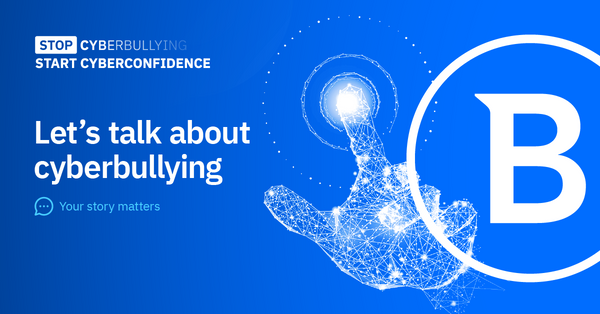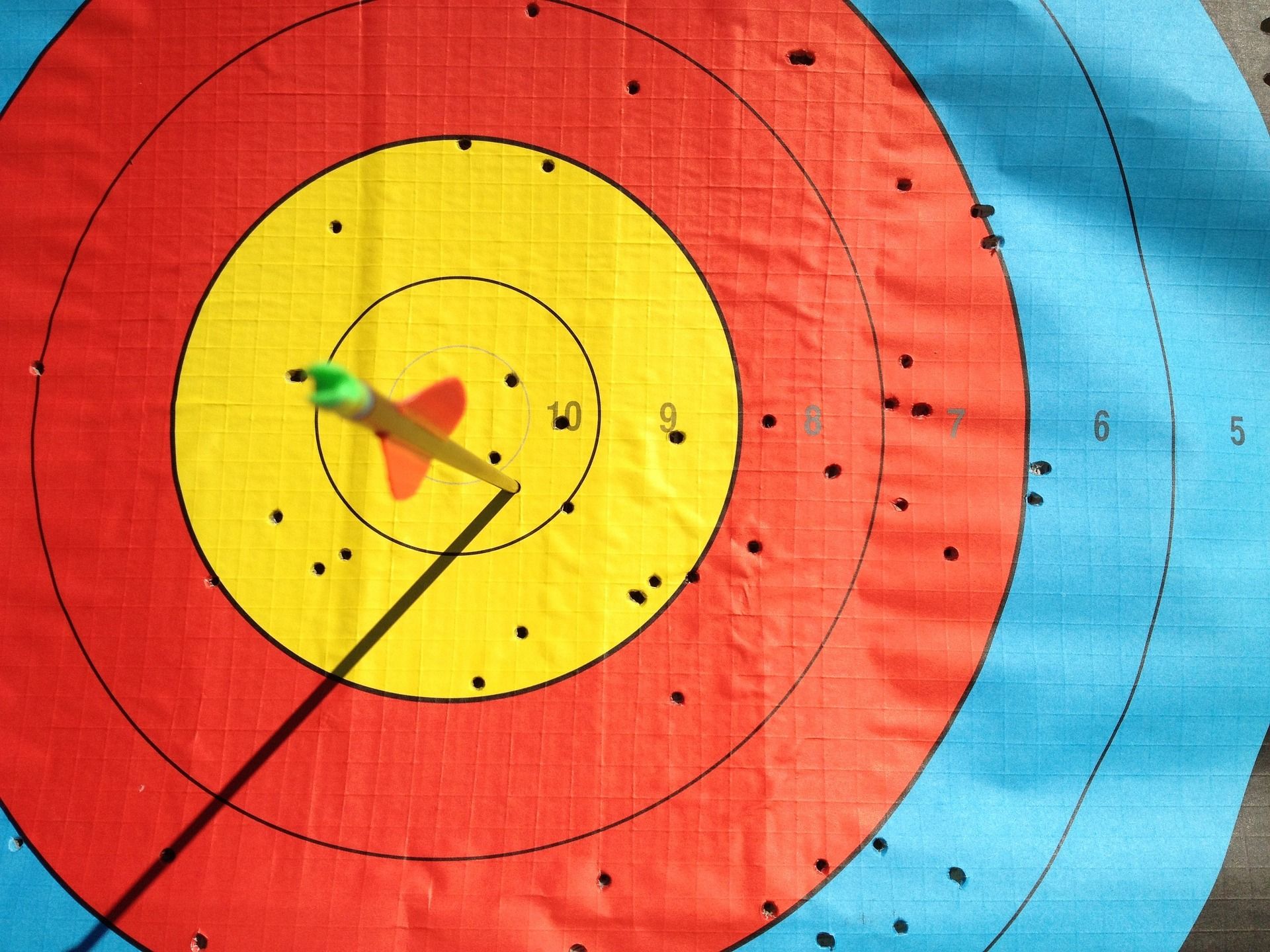Stop Cyberbullying Day: Together we can build a more resilient and cyber-confident digital community

June 16 is Stop Cyberbullying Day, a global event that celebrates unity and action to ensure that every digital citizen can safely and confidently enjoy the technological rewards of the modern world to learn, communicate and thrive.
Not so long ago, bullying was confined to the playground, school or the workplace. It’s generally seen as a premeditated or planned attack that aims to intimidate and cause emotional or physical discomfort to others.
Fast-forward to the digital age, these aggressive forms of behavior have managed to imbue every corner of the internet, and, with the help of connected devices and social media platforms, the phenomenon has taken on new shapes and forms that could affect millions of users.
Anyone can fall victim to cyberbullying
Cyberbullying, defined as a form of harassment conducted by individuals online, incorporates a variety of aggressive and toxic behaviors, including trolling, ridicule, impersonation, spreading lies or misinformation about others, stalking and sending threatening messages.
The internet gives cyberbullies little to no time constraints in consistently harassing victims but, most importantly, it gives bullies anonymity and the false belief that their actions have no real-life repercussions.
The latest studies show some worrying statistics:
- 46% of US teenagers aged 13 to 17 have been bullied online
- 41% of US adults have experienced some form of cyberbullying
- 60% of internet users have experienced or have been exposed to bullying and harassment online
- Most cyberbullying occurs on social media platforms such as Instagram, Facebook, TikTok and Twitter and gaming platforms
The real-life effects of cyberbullying can be long-term and affect both kids and adults. From struggling to fit in, anxiety, depression, academic struggles, isolation, and even sleep and eating disorders, the impact of cyberbullying can be felt on an emotional, physical and mental level.
“The best way to counteract cyberbullying is to prevent it from ever happening, or, at least, attempt to shut it down in the beginning,” Bitdefender’s Behavioral Analyst Nansi Lungu explains. “Being emotionally balanced can protect you from its effects or keep them to a minimum. Like any other emotional abuse, cyberbullying develops when people feel isolated or have emotional vulnerabilities.”
Most victims are too ashamed or scared to talk about their experiences or seek the help of family, friends or healthcare professionals when victimized. The healing process can take time, patience and perseverance, and no one should suffer in silence. Surround yourself with positivity and a friend, or family member that can help you find effective and healthy ways of coping and responding to online harassment and abuse.
Together we can turn the tables and rebalance the negative effects of cyberbullying by promoting cyberconfidence
The cyberbullies we meet online need to be discouraged, and one way we can achieve this is by not feeding their pathological need to put others down. Besides creating a more inclusive, caring and empathic digital community, potential victims need a safe and trustworthy support system that can help strengthen their self-esteem and their resilience to online attacks.
“A conscientious selection of the people you interact with in both the digital world and physical world is crucial,” Nansi added. “Our online experiences should cultivate positivity through satisfaction, knowledge and relationships. Confrontation in the online environment produces the greatest confusion both in the interpretation of the sender and the meaning of the message. It is easier to reach the conflict point when you only know the other person superficially. Carefully select the people you interact with online and ask for clarifications before confronting them.”
Most bullies we meet online crave attention, but little do they know that their harmful acts will create a permanent public record, meaning that any negative or hurtful content they share can harm their online reputation too. This means that most of the inappropriate behavior or information they make public can affect their lives significantly, including college admissions, career, relationships and family.
You have options:
- Tell someone you trust about your negative experience online.
- Keep all evidence of online harassment and abuse so you can show law enforcement or the platform.
- Do not retaliate. Calmly set your boundaries and ask the individual who is harassing you to stop. If they refuse or continue their toxic behavior you can take additional actions, which may include informing the police or other relevant parties.
"Speak your mind firmly but don't think that the world will change as a result of an online dispute," Leticia Barr, award-winning technology, education and parenting blogger, founder of TechSavvyMama.com said. "If you feel that the interlocutor is looking for a war, it is best to stay away. The world will have its rhythm but your mind will remain balanced."
- Be a role model for appropriate digital behavior for you, your family and coworkers. Just because the internet offers an easy way for anyone to expand on his or her frustrations, hurt others or say mean things, it does not mean we should.
"Today’s kids are part of the generation that will further define the digital world," Barr added. "It’s necessary to bolster their self-esteem, teach resilience, and encourage self-care.Parents can reinforce the importance of pausing, reflecting, and using words in a positive way, both in-person or through electronic methods of communication."
Parents or caretakers can celebrate the event by raising awareness and educating the younger generation about the consequences of cyberbullying and how to defend against it:
- Set an example for your kids and online followers by displaying empathy and understanding and promoting proper digital behaviors.
- Proactively listen to your children and create a trusting environment where they can open up about their problems or negative experience online.
- Only 38% of cyberbullying victims are willing to admit it to their parents because they feel ashamed or fear they might suffer repercussions such as limited screen time and internet access. Reassure your child that your support is there no matter what happens.
- Teach your kids how to notice and report any form of cyberbullying, whether it’s verbal abuse, harassment, trolling or stalking.
- Ensure that your child does not continue any toxic interactions with a bully. Cease any communication after saving evidence and deleting or blocking the toxic person from your child’s account or device.
"Empowering our kids to be upstanders encourages them to take the high road," Barr explains. "Let them know it’s always ok to stand up for things they know are wrong. Working together to teach cyber confidence doesn’t happen in a day. It’s a continuous process that involves ongoing conversations to raise young digital citizens who are empowered to be confident both online and off."
This June, we invite you all to join our initiative on Bitdefender social media channels and spread some cyberconfidence!
tags
Author

The meaning of Bitdefender’s mascot, the Dacian Draco, a symbol that depicts a mythical animal with a wolf’s head and a dragon’s body, is “to watch” and to “guard with a sharp eye.”
View all postsRight now Top posts
Few People Consider Themselves a Target for Cybercriminals, Bitdefender Study Shows
July 10, 2024
Uncovering IoT Vulnerabilities: Highlights from the Bitdefender - Netgear 2024 Threat Report
June 26, 2024
FOLLOW US ON SOCIAL MEDIA
You might also like
Bookmarks








